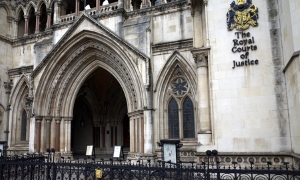This first edition, written by leading family law and contentious trusts specialists from around the world, provides a highly practical and up-to-date jurisdictional comparison focusing on family asset protection issues in a divorce context on the topics of trusts, pre- and postnuptial agreements, financial disclosure,...
| 11mos
| 11mos
This first edition, written by leading family law and contentious trusts specialists from around the...





